Filter by

Neural control of speech
A comprehensive and unified account of the neural computations underlying speech production, offering a theoretical framework bridging the behavioral and the neurological literatures.In this book, Frank Guenther offers a comprehensive, unified account of the neural computations underlying speech production, with an emphasis on speech motor control rather than linguistic content. Guenther focuse…
- Edition
- -
- ISBN/ISSN
- 9780262336987
- Collation
- 1 online resource (xiv, 410 pages) :illustrations
- Series Title
- -
- Call Number
- -

'And' :conjunction reduction redux
In this book, Barry Schein argues that "and" is always the sentential logical connective with the same, one, meaning. "And" always means "&," across the varied constructions in which it is tokened in natural language. Schein examines the constructions that challenge his thesis, and shows that the objections disappear when these constructions are translated into Eventish, a neo-Davidsonian event…
- Edition
- -
- ISBN/ISSN
- 9780262338059
- Collation
- 1 online resource (xiv, 1019 pages) :illustrations.
- Series Title
- -
- Call Number
- -

Creating language :integrating evolution, acquisition, and processing
A work that reveals the profound links between the evolution, acquisition, and processing of language, and proposes a new integrative framework for the language sciences.OCLC-licensed vendor bibliographic record.
- Edition
- -
- ISBN/ISSN
- 9780262334778
- Collation
- 1 online resource
- Series Title
- -
- Call Number
- -

Becoming fluent :how cognitive science can help adults learn a foreign language
"Adults who want to learn a foreign language are often discouraged because they believe they cannot acquire a language as easily as children. Once they begin to learn a language, adults may be further discouraged when they find the methods used to teach children don't seem to work for them. What is an adult language learner to do? In this book, Richard Roberts and Roger Kreuz draw on insights f…
- Edition
- -
- ISBN/ISSN
- 9780262330466
- Collation
- 1 online resource (xviii, 226 pages) :illustrations
- Series Title
- -
- Call Number
- -

Language Practices Among Children and Youth in Indonesia
This open access book presents studies of language use in Indonesia, focusing on children and youth. It reports on developments in the use of language for narrative production and within the realm of popular culture and traditional cultural practices in Indonesia. Through studies that include cohesion in narrative production, language in radio advertising, naming practices and formulaic prohibi…
- Edition
- -
- ISBN/ISSN
- 978-981-99-4774-4
- Collation
- XIII, 198
- Series Title
- -
- Call Number
- -
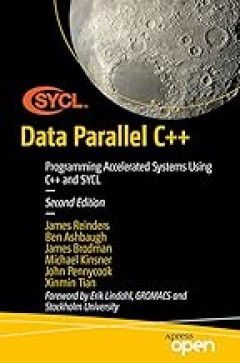
Data Parallel C++
"This book, now in is second edition, is the premier resource to learn SYCL 2020 and is the ONLY book you need to become part of this community." Erik Lindahl, GROMACS and Stockholm University Learn how to accelerate C++ programs using data parallelism and SYCL. This open access book enables C++ programmers to be at the forefront of this exciting and important development that is help…
- Edition
- -
- ISBN/ISSN
- 978-1-4842-9690-5
- Collation
- XXX, 630
- Series Title
- -
- Call Number
- -
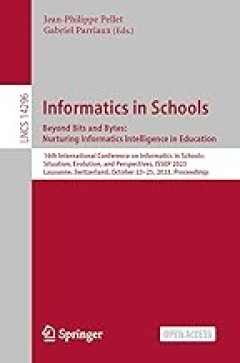
Informatics in Schools. Beyond Bits and Bytes: Nurturing Informatics Intellig…
This book constitutes the proceedings of the 16th International Conference on Informatics in Schools: Situation, Evolution and Perspectives, ISSEP 2023, held in Lausanne, Switzerland, during October 23–25, 2023. The 14 full papers presented in this book were carefully reviewed and selected from 47 submissions. They are organized in four topical sections named: artificial intelligence and i…
- Edition
- -
- ISBN/ISSN
- 978-3-031-44899-7
- Collation
- XX, 195
- Series Title
- -
- Call Number
- -
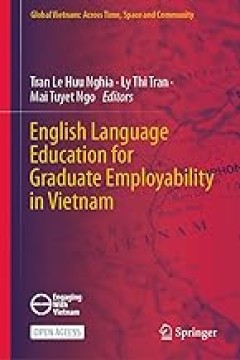
English Language Education for Graduate Employability in Vietnam
This open access book examines the teaching and learning of English for employability in Vietnamese higher education. Its content is framed within one country to better examine the research issues within the influence of contextual factors. This book investigates how English can contribute to the development of students' employability capitals, particularly in the aspects of human capital, soci…
- Edition
- -
- ISBN/ISSN
- 978-981-99-4337-1
- Collation
- XVIII, 380
- Series Title
- -
- Call Number
- -
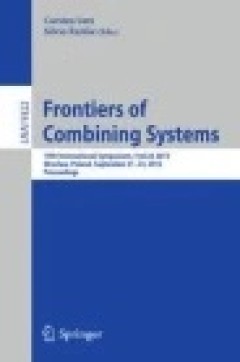
Frontiers of Combining Systems
This book constitutes the proceedings of the 10th International Symposium on Frontiers of Combining Systems, FroCoS 2015, held in Wroclaw, Poland, in September 2015. The 20 papers presented in this volume were carefully reviewed and selected from 34 submissions. They were organized in topical sections named: description logics; theorem proving and model building; decision procedures; decisio…
- Edition
- -
- ISBN/ISSN
- 978-3-319-24246-0
- Collation
- XVI, 275
- Series Title
- Lecture Notes in Computer Science
- Call Number
- -
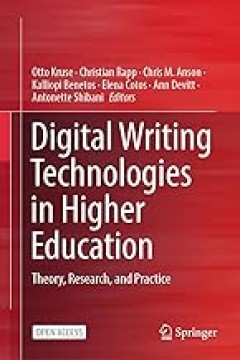
Digital Writing Technologies in Higher Education
This open access book serves as a comprehensive guide to digital writing technology, featuring contributions from over 20 renowned researchers from various disciplines around the world. The book is designed to provide a state-of-the-art synthesis of the developments in digital writing in higher education, making it an essential resource for anyone interested in this rapidly evolving field. …
- Edition
- -
- ISBN/ISSN
- 978-3-031-36032-9
- Collation
- XXV, 526
- Series Title
- -
- Call Number
- -
 Computer Science, Information & General Works
Computer Science, Information & General Works  Philosophy & Psychology
Philosophy & Psychology  Religion
Religion  Social Sciences
Social Sciences  Language
Language  Pure Science
Pure Science  Applied Sciences
Applied Sciences  Art & Recreation
Art & Recreation  Literature
Literature  History & Geography
History & Geography